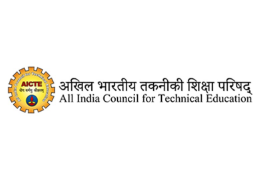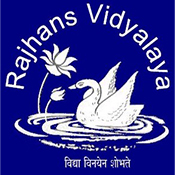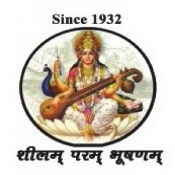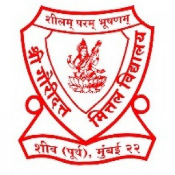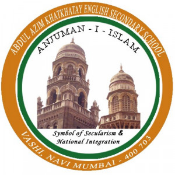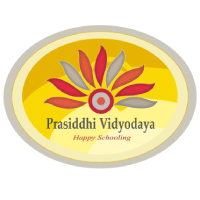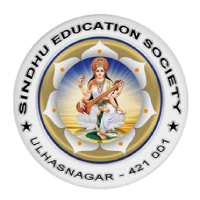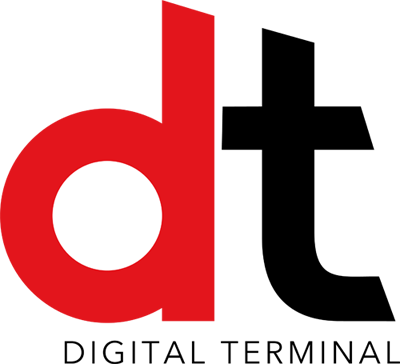Our Success Stories

Problem Area
Prarthana, torn between coding and design, was uncertain about her career choice after 11th and contacted ProTeen for career guidance.
ProTeen Solution
Prarthana underwent psychometric assessments with ProTeen to discover her ideal career path due to her strong interest in both coding and design. The assessment revealed her potential for IT-related fields, while also highlighting her creative abilities suitable for design. Consequently, ProTeen’s career counsellors recommended that Prarthana should:
- Pursue a degree in Computer Science as her primary focus.
- Enrol in short-term graphic design courses to nurture her creativity as a hobby.
Outcome
- ProTeen assisted Prarthana in choosing a field that suited her best and helped her understand how her passion and hobby could coexist.
- The entire process also helped her gain crucial insights into her future career and the best path for her to follow.

Problem Area
Nitin observed his daughter Ananya, struggling to choose between her strong passion for the science stream and her interest in the business field, leaving both father and daughter uncertain about the best path to pursue beyond 12th grade.
ProTeen Solution
Recognising the need for guidance, Nitin and Ananya turned to ProTeen. Ananya took ProTeen’s psychometric assessment, revealing her potential in both management/business and healthcare. ProTeen’s career counsellors recommended Ananya pursue a BSc in Life Science for broader career prospects, followed by an MBA in Biotech/Operations to open the doors to corporate roles. This approach helped Nitin ensure Ananya maintains her passion in science, while also allowing her to delve into the world of business.
Outcome
- ProTeen's intervention resolved a concerned parent's worries about his child's future, easing Nitin's uncertainty and ensuring Ananya had a bright future ahead.
- ProTeen’s psychometric assessments helped Ananya align her aptitude with a concrete career path and make the right career choices.
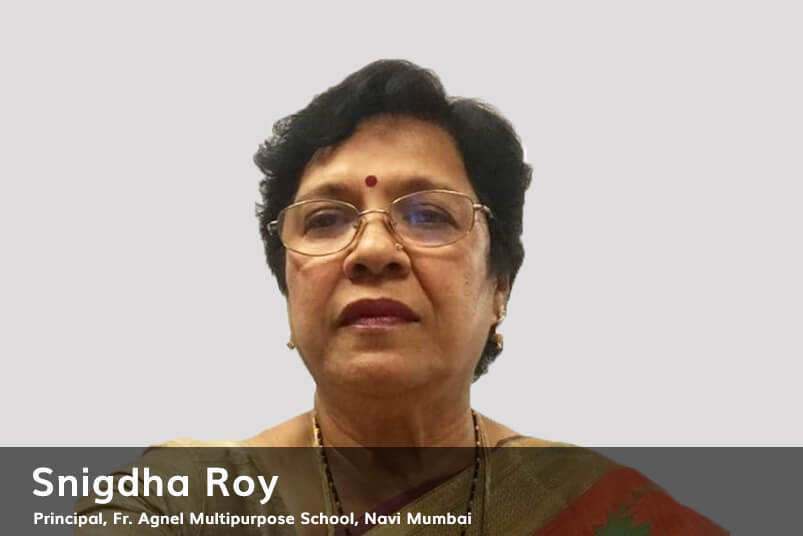
Problem Area
Fr. Agnel Multipurpose School was held back by an ineffective and manual career guidance system.
ProTeen Solution
ProTeen collaborated closely with Fr. Agnel Multipurpose School to deliver a modern, NEP-compliant, co-branded career counselling solution.
We empowered the school’s educators with anytime access to a student’s assessment results, provided analytics and customised reports to the counsellors and the school, and transformed the parent-teacher engagement experience at the school.
Outcome
- ProTeen’s modern career counselling has enhanced the lives of 700+ students and parents, brought informed academic and career decision-making to the school, and enabled the school to guide students effectively.
See how ProTeen transformed Fr. Agnel School's career guidance,
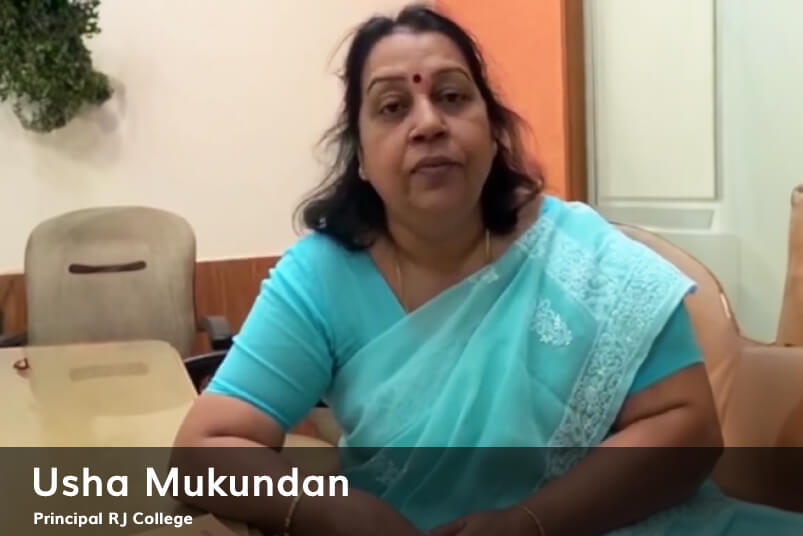
Problem Area
In the past, Mrs. Usha, the Principal of RJ College, faced many limitations in implementing an effective career guidance approach at the college. Traditional solutions failed to effectively guide the students towards well-informed career choices, hampering their potential and futures.
ProTeen Solution
ProTeen's intervention has successfully changed the college’s approach to career guidance. ProTeen's career guidance has successfully overcome the shortcomings of conventional solutions, leading to a transformative impact on student lives. Mrs. Usha believes that the long-term benefits of ProTeen's intervention at RJ College will be significant.
Outcome
- The college is no longer limited by inaccurate or manual processes due to ProTeen’s automated career guidance.
- ProTeen’s assessments provided students with ideal career recommendations that include multiple options that match their strengths.
- Students are now confident about their futures and career choices, leading to improved academic performance since they are free of career worries.

Problem Area
Ms. Chinar, a dedicated school counsellor, was looking for a program that would help her learn modern career counselling processes and techniques.
ProTeen Solution
Ms. Chinar enrolled in ProTeen's Certified Counsellor Program (CCP), where she learned the fundamentals of counselling and gained practical insights. The program included hands-on training with ProTeen's dashboard and real-world case studies, and extensive career libraries which proved to be a valuable resource. The program opened up new horizons in the field of career counselling and equipped her with effective techniques to guide students in the ever-evolving 21st-century career landscape.
Outcome
- After becoming a ProTeen Certified Counsellor, Ms. Chinar was confident and well-informed in utilising scientific tools and techniques to guide students in making informed career decisions.
- The CCP program also gave Ms. Chinar access to the AI-powered ProTeen platform and its vast career libraries and personalised assessment reports.

Problem Area
Prarthana, torn between coding and design, was uncertain about her career choice after 11th and contacted ProTeen for career guidance.
ProTeen Solution
Prarthana underwent psychometric assessments with ProTeen to discover her ideal career path due to her strong interest in both coding and design. The assessment revealed her potential for IT-related fields, while also highlighting her creative abilities suitable for design. Consequently, ProTeen’s career counsellors recommended that Prarthana should:
- Pursue a degree in Computer Science as her primary focus.
- Enrol in short-term graphic design courses to nurture her creativity as a hobby.
Outcome
- ProTeen assisted Prarthana in choosing a field that suited her best and helped her understand how her passion and hobby could coexist.
- The entire process also helped her gain crucial insights into her future career and the best path for her to follow.

Problem Area
Nitin observed his daughter Ananya, struggling to choose between her strong passion for the science stream and her interest in the business field, leaving both father and daughter uncertain about the best path to pursue beyond 12th grade.
ProTeen Solution
Recognising the need for guidance, Nitin and Ananya turned to ProTeen. Ananya took ProTeen’s psychometric assessment, revealing her potential in both management/business and healthcare. ProTeen’s career counsellors recommended Ananya pursue a BSc in Life Science for broader career prospects, followed by an MBA in Biotech/Operations to open the doors to corporate roles. This approach helped Nitin ensure Ananya maintains her passion in science, while also allowing her to delve into the world of business.
Outcome
- ProTeen's intervention resolved a concerned parent's worries about his child's future, easing Nitin's uncertainty and ensuring Ananya had a bright future ahead.
- ProTeen’s psychometric assessments helped Ananya align her aptitude with a concrete career path and make the right career choices.

Problem Area
Fr. Agnel Multipurpose School was held back by an ineffective and manual career guidance system.
ProTeen Solution
ProTeen collaborated closely with Fr. Agnel Multipurpose School to deliver a modern, NEP-compliant, co-branded career counselling solution.
We empowered the school’s educators with anytime access to a student’s assessment results, provided analytics and customised reports to the counsellors and the school, and transformed the parent-teacher engagement experience at the school.
Outcome
- ProTeen’s modern career counselling has enhanced the lives of 700+ students and parents, brought informed academic and career decision-making to the school, and enabled the school to guide students effectively.
See how ProTeen transformed Fr. Agnel School's career guidance,

Problem Area
In the past, Mrs. Usha, the Principal of RJ College, faced many limitations in implementing an effective career guidance approach at the college. Traditional solutions failed to effectively guide the students towards well-informed career choices, hampering their potential and futures.
ProTeen Solution
ProTeen's intervention has successfully changed the college’s approach to career guidance. ProTeen's career guidance has successfully overcome the shortcomings of conventional solutions, leading to a transformative impact on student lives. Mrs. Usha believes that the long-term benefits of ProTeen's intervention at RJ College will be significant.
Outcome
- The college is no longer limited by inaccurate or manual processes due to ProTeen’s automated career guidance.
- ProTeen’s assessments provided students with ideal career recommendations that include multiple options that match their strengths.
- Students are now confident about their futures and career choices, leading to improved academic performance since they are free of career worries.

Problem Area
Ms. Chinar, a dedicated school counsellor, was looking for a program that would help her learn modern career counselling processes and techniques.
ProTeen Solution
Ms. Chinar enrolled in ProTeen's Certified Counsellor Program (CCP), where she learned the fundamentals of counselling and gained practical insights. The program included hands-on training with ProTeen's dashboard and real-world case studies, and extensive career libraries which proved to be a valuable resource. The program opened up new horizons in the field of career counselling and equipped her with effective techniques to guide students in the ever-evolving 21st-century career landscape.
Outcome
- After becoming a ProTeen Certified Counsellor, Ms. Chinar was confident and well-informed in utilising scientific tools and techniques to guide students in making informed career decisions.
- The CCP program also gave Ms. Chinar access to the AI-powered ProTeen platform and its vast career libraries and personalised assessment reports.
-
100,000+Students & Parents Guided
-
100+Premier Schools Partnered
-
50+Colleges & Institutes Empowered
-
500+Counsellors & Educators Certified
Our Key Career Counselling Solutions
Personalised, holistic career counselling solutions for every stakeholder in the career guidance process
Psychometric Assessments
Find your true strengths and interests with ProTeen’s reliable and scientifically accurate psychometric assessments built on parameters of Aptitude, Multiple Intelligences, Personality, and Interests, designed to help high school and college students make the right choices at the right time.
500+ Career Demos™
ProTeen offers the unique option of experiencing your favourite careers from the comfort of your home with 500+ Career Demos and Interactive Quizzes. It is built to make academic and career journeys experiential and demonstrative with the power of technology.
Career Counselling
ProTeen’s Career Experts will provide a holistic vision of your capabilities by taking into consideration your true interests as well as skills. These first steps are vital for formulating and executing an optimal career plan tailormade to fit a student perfectly.
Personalised Reports
ProTeen’s personalised report is designed to guide your child towards their perfect career, offering a thorough solution that includes every detail and facet important to make a well-informed academic and career decision.
The comprehensive report includes detailed analytics, insights, and recommendations for any stage of a student’s life and helps them make the right academic and career choices at the right time.
Speak to our Career Experts
At ProTeen, our career experts understand that all parents want the best for their child's future. ProTeen's counsellors, backed by technology, are trained to provide unbiased guidance based on your child’s true strengths, abilities, and interests.
To help your child make informed career choices, talk to our career experts today.
Psychometric Assessments
Powered by ProTeen’s 3D Awareness Engine, our psychometric assessments help your child find their true strengths and interests.
Reliable and scientifically accurate, our psychometric assessments are built on parameters of Aptitude, Multiple Intelligences, Personality, and Interests to help your child in high school or college make the right career decisions.
Integrated Academic & Career Guidance Platform
ProTeen's automated technology has transformed the career counselling process for schools in the 21st century.
The AI-powered, digital platform has made the career guidance process efficient, accurate, and personalised, providing schools with detailed insights and analytics – allowing them to provide end-to-end career guidance to their students.
Train & Certify Counsellors & Teachers
ProTeen’s Certified Counsellor Program (CCP) is designed to help counsellors and educators gain crucial knowledge on the fundamentals of 21st Century Career counselling and its real-world application.
ProTeen helps you build a sustainable career guidance ecosystem with the right tools and trained in-house career counsellors to provide scientific and unbiased guidance to your students.
NEP-compliant ProTeen
With the impending implementation of the National Education Policy (NEP) by the Government of India, career counselling is set to become mandatory in every school's curriculum, highlighting the importance of the ProTeen platform.
Additionally, ProTeen's AI-powered psychometric assessment tools complements the tracking of students' academic growth, similar to the proposed new progress cards by the NEP.
Integrated Academic & Career Guidance Platform
ProTeen's automated career guidance has revolutionised career counselling for institutions in the 21st century.
The AI-powered, digital platform has made the career guidance process efficient, accurate, and personalised, providing institutions with an automated tool with detailed insights and analytics to help students make informed decisions for their future.
Train & Certify Counsellors & Educators
ProTeen’s Certified Counsellor Program (CCP) is designed to help counsellors and educators gain crucial knowledge on the fundamentals of 21st Century Career counselling and its real-world application.
ProTeen’s CCP enables diversified skillsets and implementation of professional career counselling in universities, colleges, and other educational institutes.
Insightful Seminars and Educational Workshops
ProTeen conducts empowering career talks, webinars, and workshops designed to provide industry insights and guidance on making the right academic and career choices.
Our interactive sessions offer learning opportunities for gaining in-depth knowledge about various career paths, the skills necessary for modern careers, and how to thrive in the 21st-century career landscape.
End-to-End Career Guidance Platform
ProTeen provides full access to our ready-to-use, integrated academic and career guidance platform, allowing career counsellors to guide high school and college students anytime, anywhere through the ProTeen platform in a more scientific and holistic manner.
Certified Counsellor Program (CCP)
ProTeen’s Certified Counsellor Program (CCP) is designed to help practising or aspiring counsellors gain crucial knowledge on the fundamentals of 21st Century Career counselling and its real-world application.
ProTeen’s CCP empowers counsellors and educators with the right skills, knowledge, and tools to provide scientific and unbiased guidance to students.
Career Counselling Handbook
The ‘Career Counselling in the 21st Century’ Handbook aims to help career counsellors keep up with the changes, have an innovative approach, and be digitally empowered to help students make informed career choices for today’s world.
ProTeen was made for everyone and with one end goal in mind – that every student must have the right to choose their future. This handbook aims to empower career counsellors and students in achieving this goal.
Psychometric Assessments
Find your true strengths and interests with ProTeen’s reliable and scientifically accurate psychometric assessments built on parameters of Aptitude, Multiple Intelligences, Personality, and Interests, designed to help high school and college students make the right choices at the right time.
500+ Career Demos™
ProTeen offers the unique option of experiencing your favourite careers from the comfort of your home with 500+ Career Demos and Interactive Quizzes. It is built to make academic and career journeys experiential and demonstrative with the power of technology.
Career Counselling
ProTeen’s Career Experts will provide a holistic vision of your capabilities by taking into consideration your true interests as well as skills. These first steps are vital for formulating and executing an optimal career plan tailormade to fit a student perfectly.
Personalised Reports
ProTeen’s personalised report is designed to guide your child towards their perfect career, offering a thorough solution that includes every detail and facet important to make a well-informed academic and career decision.
The comprehensive report includes detailed analytics, insights, and recommendations for any stage of a student’s life and helps them make the right academic and career choices at the right time.
Speak to our Career Experts
At ProTeen, our career experts understand that all parents want the best for their child's future. ProTeen's counsellors, backed by technology, are trained to provide unbiased guidance based on your child’s true strengths, abilities, and interests.
To help your child make informed career choices, talk to our career experts today.
Psychometric Assessments
Powered by ProTeen’s 3D Awareness Engine, our psychometric assessments help your child find their true strengths and interests.
Reliable and scientifically accurate, our psychometric assessments are built on parameters of Aptitude, Multiple Intelligences, Personality, and Interests to help your child in high school or college make the right career decisions.
Integrated Academic & Career Guidance Platform
ProTeen's automated technology has transformed the career counselling process for schools in the 21st century.
The AI-powered, digital platform has made the career guidance process efficient, accurate, and personalised, providing schools with detailed insights and analytics – allowing them to provide end-to-end career guidance to their students.
Train & Certify Counsellors & Teachers
ProTeen’s Certified Counsellor Program (CCP) is designed to help counsellors and educators gain crucial knowledge on the fundamentals of 21st Century Career counselling and its real-world application.
ProTeen helps you build a sustainable career guidance ecosystem with the right tools and trained in-house career counsellors to provide scientific and unbiased guidance to your students.
NEP-compliant ProTeen
With the impending implementation of the National Education Policy (NEP) by the Government of India, career counselling is set to become mandatory in every school's curriculum, highlighting the importance of the ProTeen platform.
Additionally, ProTeen's AI-powered psychometric assessment tools complements the tracking of students' academic growth, similar to the proposed new progress cards by the NEP.
Integrated Academic & Career Guidance Platform
ProTeen's automated career guidance has revolutionised career counselling for institutions in the 21st century.
The AI-powered, digital platform has made the career guidance process efficient, accurate, and personalised, providing institutions with an automated tool with detailed insights and analytics to help students make informed decisions for their future.
Train & Certify Counsellors & Educators
ProTeen’s Certified Counsellor Program (CCP) is designed to help counsellors and educators gain crucial knowledge on the fundamentals of 21st Century Career counselling and its real-world application.
ProTeen’s CCP enables diversified skillsets and implementation of professional career counselling in universities, colleges, and other educational institutes.
Insightful Seminars and Educational Workshops
ProTeen conducts empowering career talks, webinars, and workshops designed to provide industry insights and guidance on making the right academic and career choices.
Our interactive sessions offer learning opportunities for gaining in-depth knowledge about various career paths, the skills necessary for modern careers, and how to thrive in the 21st-century career landscape.
End-to-End Career Guidance Platform
ProTeen provides full access to our ready-to-use, integrated academic and career guidance platform, allowing career counsellors to guide high school and college students anytime, anywhere through the ProTeen platform in a more scientific and holistic manner.
Certified Counsellor Program (CCP)
ProTeen’s Certified Counsellor Program (CCP) is designed to help practising or aspiring counsellors gain crucial knowledge on the fundamentals of 21st Century Career counselling and its real-world application.
ProTeen’s CCP empowers counsellors and educators with the right skills, knowledge, and tools to provide scientific and unbiased guidance to students.
Career Counselling Handbook
The ‘Career Counselling in the 21st Century’ Handbook aims to help career counsellors keep up with the changes, have an innovative approach, and be digitally empowered to help students make informed career choices for today’s world.
ProTeen was made for everyone and with one end goal in mind – that every student must have the right to choose their future. This handbook aims to empower career counsellors and students in achieving this goal.
Academic and Career Counselling powered by ProTeen’s 3D Awareness Engine.

Awareness of Self

Awareness of the Career Landscape

Awareness of the Right Fit
Why ProTeen for Career Counselling?
ProTeen is the most trusted and advanced career guidance platform for students, helping them make informed academic and career decisions. Powered by ProTeen's 3D awareness engine, our revolutionary career counselling, offered online or in-person, can help discover your ideal career. With our robust technology lineage and science, you can secure your future easily with ProTeen!
- Backed by Science and Research
- 1:1 Sessions with Career Experts
- 500+ Career Demos and Insights
- Personalized Dashboard & Roadmap
Part of NEAT 2.0, an initiative by AICTE & MoE
ProTeen is now part of NEAT 2.0, an initiative by AICTE (All India Council of Technical Education), a Ministry of Education agency, ProTeen has the validation, support and backing of the Government of India, a huge boost for its growth plans.
Academic Partners
OUR ESTEEMED NETWORK





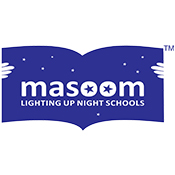
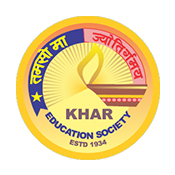



and many more... >
Read Our Blogs
DISCOVER LATEST TRENDS
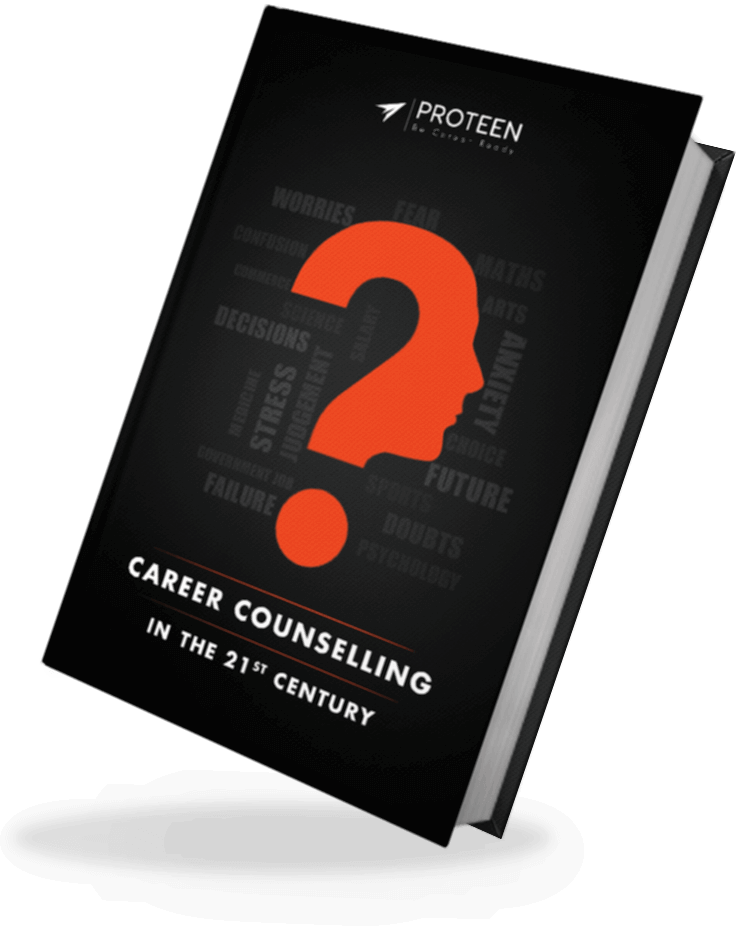
Empowering career counsellors
and students in the 21st century

Frequently Asked Questions
Covering fundamental questions on how career guidance works and
what ProTeen's career counselling can do for you.
Career Counselling: Career counselling and career guidance are two terms often thought to be the same, but they have different purposes. Career counselling primarily involves one-on-one or online sessions with a career guidance counsellor who assesses an individual's skills, interests, aspirations, and intelligences, puts together the information, and points students in the right direction. Through career counselling, students receive personalised guidance on the proper subjects they should pick, the best stream for them to study, and the right career options that suit their strengths.
Career Guidance: Career guidance, however, extends beyond one-on-one sessions. It involves supporting students and professionals with a wide range of resources and tools, both online and offline and is designed to help students and young professionals explore and plan the perfect career paths. Career guidance for students encompasses workshops, seminars, assessments, and access to comprehensive information related to diverse professions.
ProTeen offers unbiased, accurate, and scientific career counselling and guidance for students to help them make smart academic and career decisions. ProTeen’s experienced career counsellors combined with detailed analysis and reports, give students a personalised and optimal foundation for academic and career success.
Psychometric career assessments are valuable tools offered in the realm of career guidance and counselling for students seeking career counselling online or in person. ProTeen’s psychometric assessments are scientifically-backed tests helping students undergoing career counselling discover their true aptitude, interests, personality traits, and types of intelligence they are good at. These factors are combined with scientifically relevant principles to map students’ strengths and interests with their ideal career fit.
These assessments are a vital part of the career counselling process, helping students understand their true selves and make well-informed decisions about their futures.
Career counselling plays a crucial role, especially for students, offering essential career guidance and support in shaping their professional journeys. For career counselling to be effective, it is important to understand a student’s full story. External factors such as a student’s background, role models, exposure to the world and much more influence a student’s outlook and career aspirations. Career counselling helps students understand their true selves and guides them to the right answers.
Career counselling and a dedicated career guidance counsellor are instrumental in providing students with career clarity, informed decision-making capabilities, and maximising their potential. Through career counselling, students can discover their true strengths, interests, and passions and receive expert career guidance on the ideal academic paths to follow and the right career options to pick, all of which with their unique strengths and interests.
ProTeen’s career counselling can provide students with all the answers they require to plan their entire career journey. Start now!
Choosing the right time to seek career counselling, especially for students, can significantly impact your future. Students need to consider career counselling when they are unsure about their career path and need expert career guidance. Whether you are a student in 10th wondering what your future career could look like or you have passed your 12th and weighing your career options and what the next step should be and how to achieve your dreams; career counselling is the answer. Additionally, career counsellors can provide personalised guidance to students on potential professions and courses that suit them best. In today's digital age, online and hybrid career counselling is easily available, making career counselling an easy-to-access solution when students need it most.
Career counselling is exceptionally important for 11th and 12th class students, as this is a critical stage in their education and career journey. Career counselling for students at this stage is crucial as it helps them make well-informed choices about their future. If you are a student in 11th or 12th and not sure about which course or career is right for you, career counselling offers expert guidance on career and education choices. With many options in subjects, courses, and colleges available to choose from, access to career guidance ensures that you get expert advice on all the different career options and courses available to you. Career counselling can effectively help 11th and 12th students discover their true strengths and interests, find the right courses to study, and help open hidden doors that might not have been an option. Additionally, career counselling can highlight which skills and professions are high in demand in the market and help students plan for their careers.
Career counselling holds significant importance for 8th to 10th standard students. These are the years when young students start to consider their unique strengths and discover their own career paths. This is why career counselling for students from 8th to 10th is vital, as these formative years are the perfect time for students to introspect, explore, and plan for the future. Dedicated career guidance from a career counsellor can provide invaluable insights to a student looking to have a secure plan for their future. Through career counselling and psychometric assessments, students can gain awareness of their true interests and strengths, which helps them understand which subjects, streams, and careers could be the right fit for them. Through early exposure to a wide range of career possibilities, career counselling also helps students from 8th – 10th develop greater career awareness and have multiple plans for achieving academic and career goals. In short, for 8th to 10th standard students, career counselling is a crucial tool that can help them have the right career plan starting from school.
Getting career counselling online is easy and convenient. To get career counselling for students, simply visit the ProTeen website and sign up. You can then connect with a dedicated career guidance counsellor specialising in providing personalised career guidance and counselling tailored to your requirements. Whether you are looking for career or academic help, wondering which career to pick in college, or discover your ideal career and develop a plan, our trained and certified career experts are here to help. ProTeen's career counselling is also hybrid, with career counselling available both, in person and online, to best suit your preferences and needs. Getting the career guidance you seek for a successful future is now just a click away!
Career guidance for students offers numerous benefits that can help them plan their career paths and achieve their goals. Career counselling for students helps them make informed decisions about their future, enabling them to choose the right streams and career options at the right time. A dedicated career guidance counsellor can also provide students with personalised career guidance and counselling, giving them greater career clarity and more confidence in choosing a career that aligns with their true strengths. With ProTeen’s in-person or online career counselling, students can conveniently and easily gain access to personalised guidance and deal with any career worries in school or college.
In short, absolutely! Career counselling for students can be well worth it. Career guidance at the right time can be a game-changer and enable students to make well-informed academic and career decisions. A skilled career guidance counsellor provides personalised career guidance and counselling, helping students discover skills and talents they lack awareness of. Other benefits like having a clear career path to follow with multiple plans in place can prove invaluable in the long run. Overall, students gaining the confidence and clarity to pick a career that aligns with their strengths, preferences, and passion can make career counselling a valuable investment in your future.
ProTeen is a highly advanced and trusted career counselling and career guidance platform for students, designed to help them make smart academic and career decisions. ProTeen was made for everyone and with one goal in mind – that every student must have the right to choose their own future, irrespective of their economic background, birthplace, or gender.
To achieve that goal, ProTeen offers a wealth of powerful career counselling solutions that provide students with personalised and customised career guidance. Powered by ProTeen's 3D Awareness engine, our career counselling can help you discover your ideal career and make informed career decisions. From comprehensive psychometric assessments to personalised reports and career counselling that plans for every step of a student’s career journey. Contact us or register on the website for career guidance for students that is scientific, unbiased, and helps you become career-ready for the 21st century.





